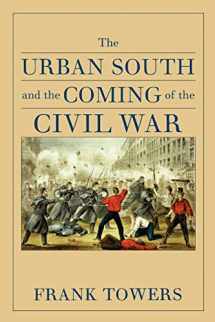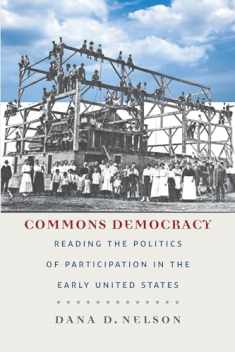
The Urban South and the Coming of the Civil War
ISBN-13:
9780813927879
ISBN-10:
0813927870
Edition:
1
Author:
Frank Towers
Publication date:
2004
Publisher:
University of Virginia Press
Format:
Paperback
Category:
Civil War
,
United States History
,
Revolution & Founding
,
Americas History
FREE US shipping
Book details
ISBN-13:
9780813927879
ISBN-10:
0813927870
Edition:
1
Author:
Frank Towers
Publication date:
2004
Publisher:
University of Virginia Press
Format:
Paperback
Category:
Civil War
,
United States History
,
Revolution & Founding
,
Americas History
Summary
The Urban South and the Coming of the Civil War (ISBN-13: 9780813927879 and ISBN-10: 0813927870), written by authors
Frank Towers, was published by University of Virginia Press in 2004.
With an overall rating of 3.8 stars, it's a notable title among other
Civil War
(United States History, Revolution & Founding, Americas History) books. You can easily purchase or rent The Urban South and the Coming of the Civil War (Paperback) from BooksRun,
along with many other new and used
Civil War
books
and textbooks.
And, if you're looking to sell your copy, our current buyback offer is $0.3.
Description
The role the rural South and its plantation system played in the secession of the Confederate states is well established, but historian Frank Towers contends that we should look just as closely at the South’s urban centers. An exemplary feat of research, The Urban South and the Coming of the Civil War sheds light on the dynamics of secession by concentrating on pivotal sociopolitical shifts in the South’s three largest cities―Baltimore, New Orleans, and St. Louis. Despite having a culture and an economy rooted in agriculture, between 1840 and 1860 the South actually experienced greater growth in its cities than in its rural sectors. Attracted to the cities by jobs in commerce and industry, propertyless white workingmen developed a slave-state variant of the free-labor politics that Abraham Lincoln’s Republican Party used to gain prominence in the North. Lacking the sort of national organization that could contribute to the cause through patronage and legislation, parties such as Baltimore’s Know-Nothings relied instead on a combination of nativism, labor-supported machine politics, and electoral coercion. By the late 1850s, the Democratic Party dominated the state legislatures of Louisiana, Missouri, and Maryland, and yet it had lost all of those states’ largest cities. Towers shows how the ascendance of urban opposition parties hastened the collapse of the Jacksonian party system. Although they were proslavery, urban voters favored workers’ rights and stronger municipal government, both of which threatened the planter dominance, particularly in light of prospective urban alliances with Washington. Fearing the horrors of mob rule and the slim chances of slavery’s survival in an atmosphere of working-class politics, rural planters largely abandoned the traditional Whig-Democrat competition and banded together in a more staunchly secessionist position. The Urban South and the Coming of the Civil War makes clear that this shift played a critical role in placing the South on an unalterable path toward war.


We would LOVE it if you could help us and other readers by reviewing the book
Book review

Congratulations! We have received your book review.
{user}
{createdAt}
by {truncated_author}




